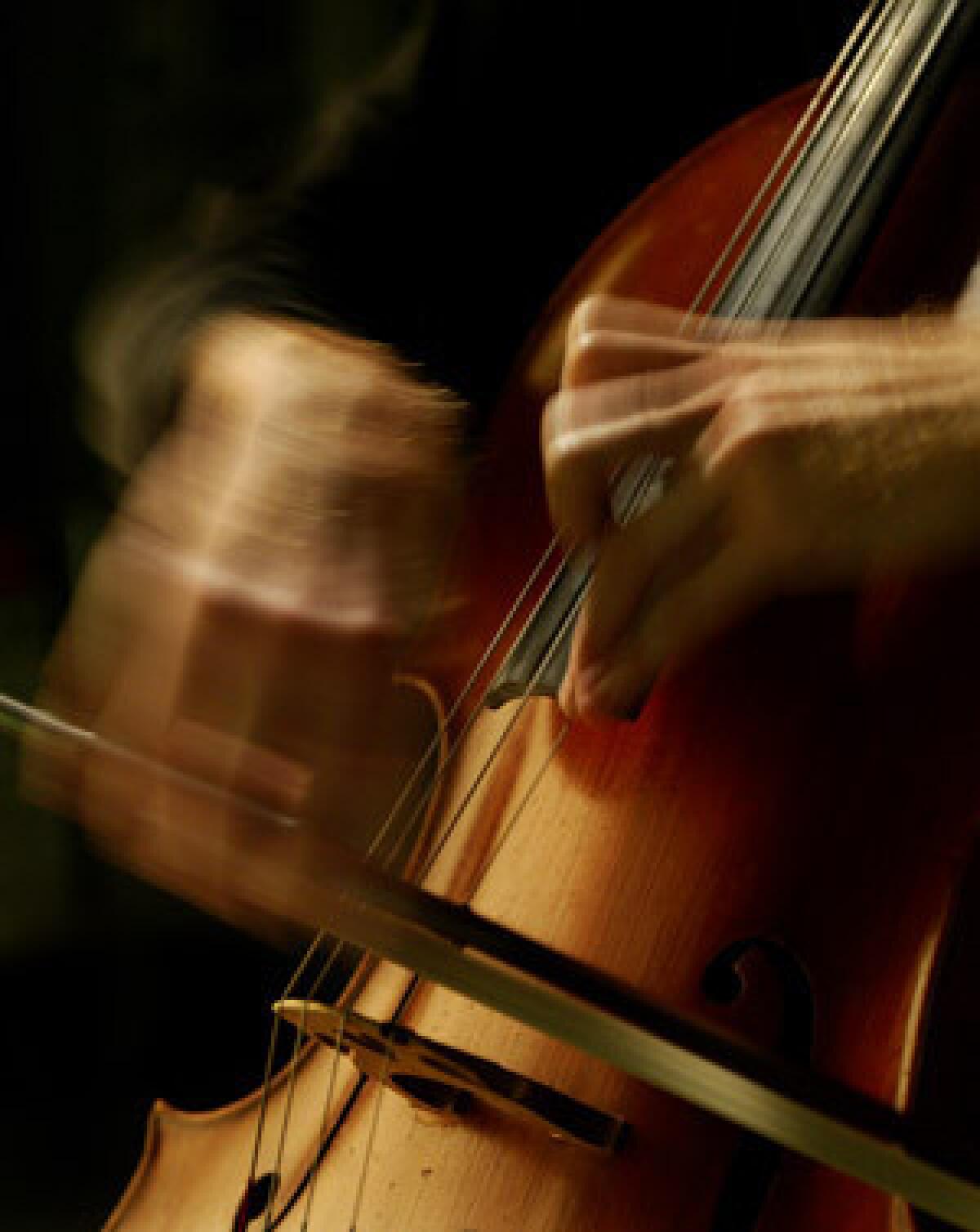For cellist, the music lingers after memory has faded

- Share via
A concert cellist whose memory was virtually wiped out by a brain infection may no longer remember the names of the composers whose work he once played before admiring audiences. But he can remember and recognize virtually every note of their compositions, and even more remarkably, can learn and commit to memory new pieces of music he did not know before a raging case of herpes encephalitis robbed him of his ability to recognize most of his family, recall details of his homeland or remember details of his own life before his illness.
The findings from this remarkable case study, presented Sunday in Washington at the Society for Neuroscience’s annual meeting, suggest that musical memory may be formed, stored and retrieved using an entirely different set of brain structures from those used for verbal or experiential memories.
The case of P.M., a 68-year-old German cellist, may offer insight into and hope for the rehabilitation of people with grievous brain injury or disease affecting memory. Perhaps, said neuroscientist Carsten Finke of the University of Berlin, music may provide a way into the minds of patients cut off from their past by stroke, injury or brain disease - -or a way back for some.
His case study furthers evidence gleaned from studies of others with memory deficits -- including patients with stroke and Alzheimer’s Disease -- that musical memories often endure long after other memories have been destroyed or made inaccessible.
In 2005, a case of brain swelling destroyed some of the key nodes of the networks that manage memory for facts (semantic memory) and memory for events (episodic memory) in P.M.’s brain: Parts of the medial temporal lobes on both sides of his brain were irreparably damaged. Afterward, P.M. remembered no composers’ names except Ludwig von Beethoven’s, no rivers or states in his native Germany, and no one in his family except his brother. He lived, said Finke, “in the moment.”
But when Finke and his colleagues played music and asked him to identify the intervals, scales, rhythms and metrics of several pieces he had known well before his illness, he could do so with great accuracy.
Finke said Sunday that evidence that musical memory is stored separate from other memory might be used to help in rehabilitation -- whether in reminding patients to take their medication, providing a rhythm that could help them walk or simply revisiting happier times.
More to Read
The biggest entertainment stories
Get our big stories about Hollywood, film, television, music, arts, culture and more right in your inbox as soon as they publish.
You may occasionally receive promotional content from the Los Angeles Times.









